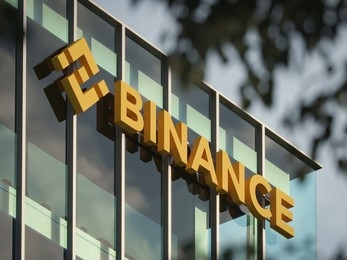Binance, the world’s largest cryptocurrency exchange by trading volume, has taken a significant step towards reshaping its operations by appointing a board of directors for the first time. This move comes after the exchange pleaded guilty last year to US charges related to anti-money laundering (AML) and sanctions violations.
Binance Unveils Inaugural Board Of Directors
According to a Bloomberg report, the board consists of seven members, with Gabriel Abed, the former ambassador of Barbados to the United Arab Emirates, assuming the role of chairman. Binance CEO Richard Teng is also a member of the board, along with three other company executives: Heina Chen, Jinkai He, and Lilai Wang.
Two external members, Arnaud Ventura (Managing Partner of Gojo & Co) and Xin Wang (CEO of Bayview Acquisition Corp.), are also part of the newly appointed board of directors of the exchange.
Chen, He, and Wang, who have reportedly been with Binance since its inception, are among the founding team members of the exchange. Chen currently holds a senior executive and co-founder position at Binance, while Wang is responsible for the exchange’s technology development.
Some experts have expressed their views on the composition of the board. Austin Campbell, an adjunct professor at Columbia Business School and a consultant for blockchain firms, believes that having a board primarily composed of company insiders indicates “resistance” to outside control and oversight.
Campbell also suggests that the alleged “lack of independent members” with “deep” regulated financial risk or compliance experience may not be ideal. However, he acknowledges that the board appointment is a step in the right direction and emphasizes the importance of “effective governance” moving forward.
Steps Toward Conventional Corporate Structure
The appointment of the board marks one of the significant changes being implemented at Binance since Richard Teng took over as CEO in November. As reported by Bitcoinist, Teng assumed leadership following the settlement between Binance and US authorities.
The exchange has yet to announce its global headquarters, and the board’s formation is seen as part of the company’s efforts to establish a more conventional corporate structure, according to Bloomberg.
In February, Binance agreed to pay $4.3 billion after a US judge approved a plea deal. The settlement was part of a case against Binance in which founder Changpeng Zhao (CZ) also pleaded guilty to charges related to anti-money laundering and sanctions violations. Zhao is expected to be sentenced around April 25.
The appointment of a board of directors at Binance represents a significant milestone in the exchange’s ongoing transformation.
By enhancing governance and compliance measures, Binance aims to address regulatory challenges and rebuild trust within the crypto industry. The board’s effectiveness in guiding the company’s future endeavors will be key to its success as it navigates the evolving landscape of digital assets.
Featured image from Shutterstock, chart from TradingView.com
